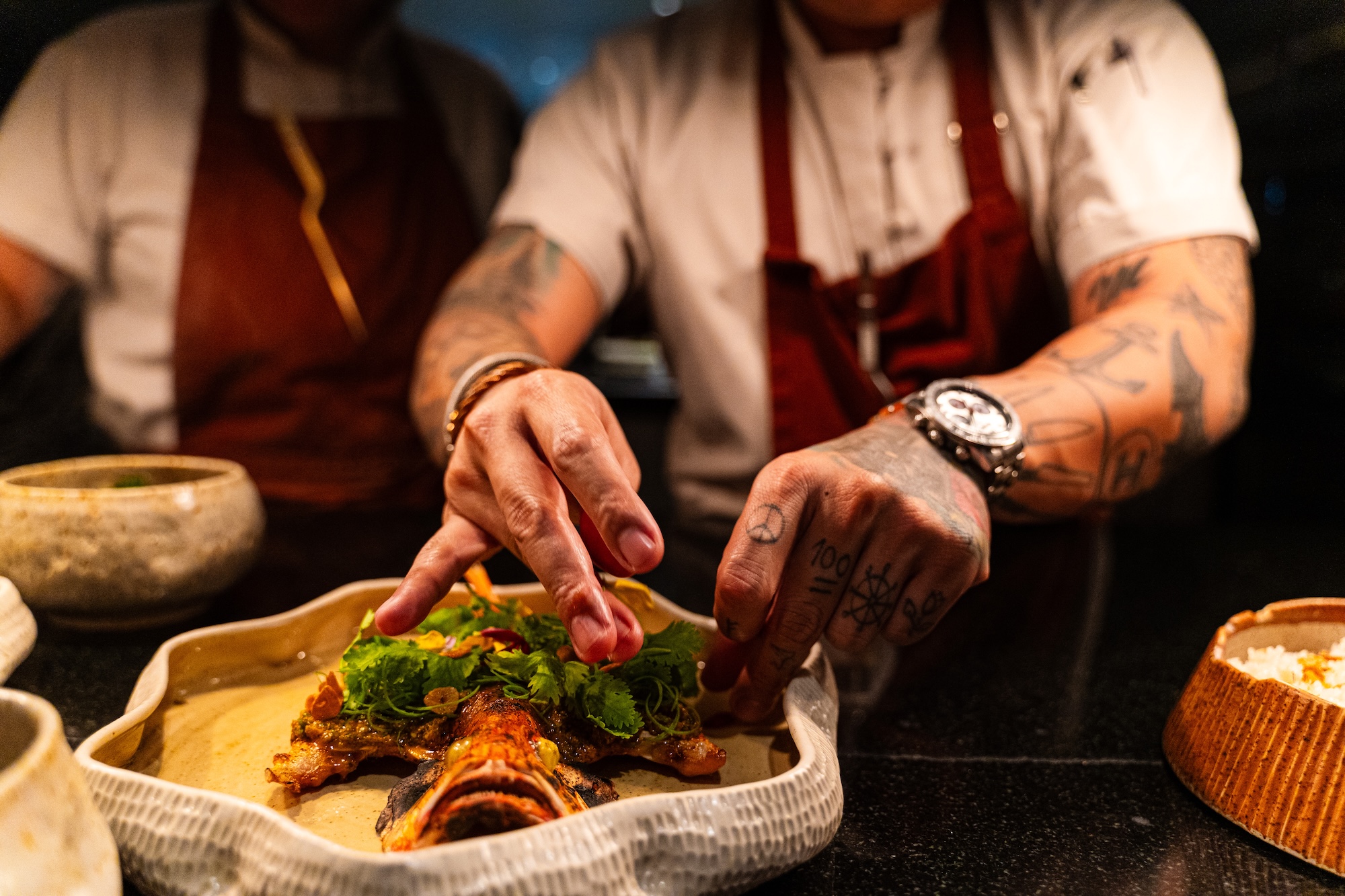
A few days before Christmas, I walked into Sir Gani’s office and handed him a gift. It was nothing lavish, just a box of chocolate truffle-filled mochi balls that I thought he would enjoy. He took the box and said, looking embarrassed, “Naku…” He trailed off but I knew what he meant. He didn’t have a gift for me.
I laughed and said, “Sir, it’s OK! Merry Christmas!”
Sir Gani loved food. Often, he’d walk to the Lifestyle section to see what goodies we had spread out on our table. Sometimes there would be pizza, sometimes donuts, sometimes pancit. And it was always funny to see him, a big boss, doing something I think every person in the newsroom has done—use bond paper as a plate in the absence of real paper plates.
Sir Gani didn’t just visit our department to look for sustenance. He’d ask me, on days we were putting Super to bed, “What time will you finish today?” And it didn’t matter if I said “8” or “9” or “10.” His response was always the same: “A.M.?”
It was a throwback to the days when my section was notorious for closing our pages up to the wee hours. It didn’t matter that I couldn’t remember the last time we missed our deadline, Sir Gani never got tired of that joke.
Last year, I wrote a piece, “The Next Person Who Asks Me When I’m Getting Married Will Get Punched In The Face.” Naturally, the funny guy that he was, Sir Gani walked up to my desk to ask when I was getting married. No, I didn’t punch him in the face.
Pat on the back
When he’d see new people in the office, he was the first to introduce himself. He was friendly, welcoming, approachable.
Over a decade ago, when I first started closing the pages of the youth section 2bU! at the age of 19, Sir Gani was one of the first to show full confidence in me. “Congratulations! Great issues!” he’d tell me, taking the time out from his busy day to give me a pat on the back.
I looked forward to seeing my pages tacked on the office walls, with his notes scribbled on top of them. “Interesting story,” he wrote in red ink over the head of a travel piece I wrote about Jakarta.
Sir Gani was also the first person to give me an assignment for the front page. He asked me to go to a three-day science and technology conference back in 2003.
“Scary,” I said, before I could stop myself.
“Scary,” he repeated, chuckling and shaking his head.
I asked him, “When’s my deadline?”
He said, “Every day is your deadline.”
I doubted myself. He didn’t.
He cared
I loved that he was quick to embrace the presence of young people in the newsroom. That he didn’t see us as a threat but as the future. That he commanded respect without terrorizing. That he ruled with kindness. That he was there to offer guidance, encouragement and kindness when they were needed. That he dealt with problems with a cool head and a great attitude. That he listened. That he cared. And as someone who literally grew up in the newsroom, that meant the world to me.
When my book, “Paper Cuts,” was about to hit the market in December 2010, I had 10 early copies to give away. I thought long and hard about whom I wanted to give those first 10 copies to. Sir Gani was one of those people. I gave him the book along with a card telling him how thankful I was for all the support he’d given me all these years.
I was so glad I was able to tell him that he had touched my life in a positive way.
Touching lives
Inquirer feels more like a home than an office to me. And losing Sir Gani feels like losing a family member.
I will miss him. I will miss seeing him in the office. I will miss his presence at meetings. I will miss his jokes. I will miss his red scribbles over our pages. I will miss running into him at Greenbelt Cinemas during late-night screenings. I will miss him asking me what time we’d finish. Heck, I will even miss those mass e-mails he loved sending.
So many people have paid tribute to Sir Gani. It’s amazing to see how many people he had touched. The memories are beautiful and the tributes say the same things over and over. He was kind. He was a gentleman. He was soft-spoken. He was cheerful. He was all that and more.
For 13 years, while he was alive, he made me want to be a better journalist. And now, in his death, he makes me want to be a better person.














































